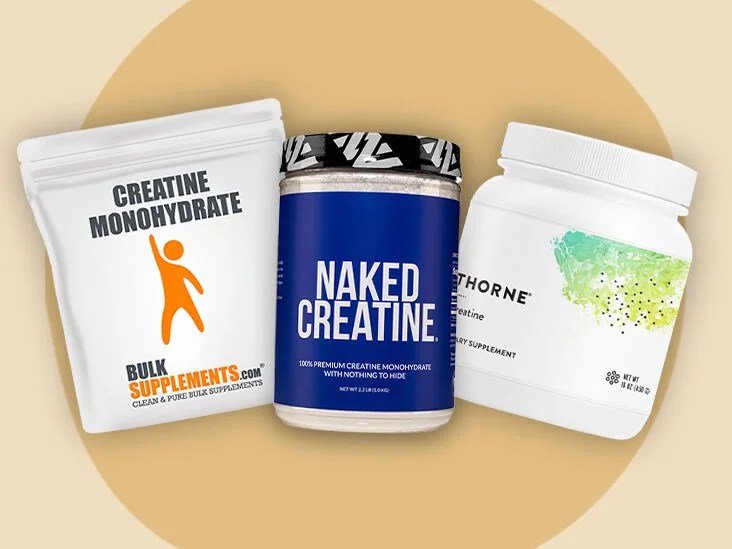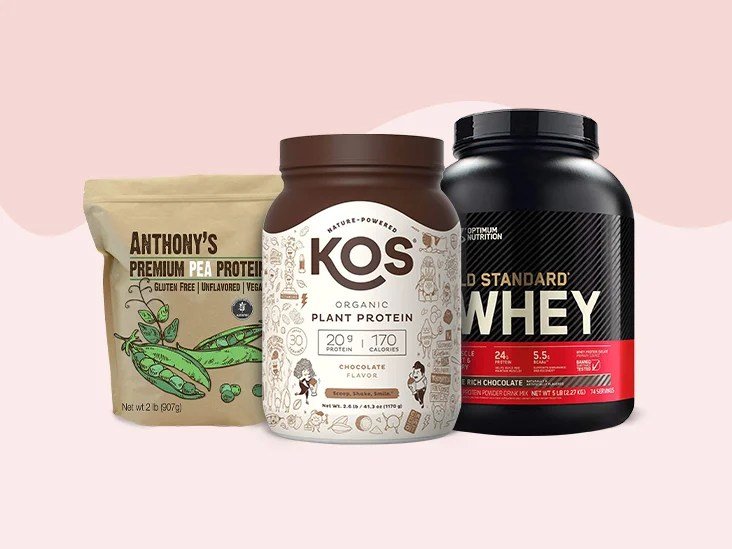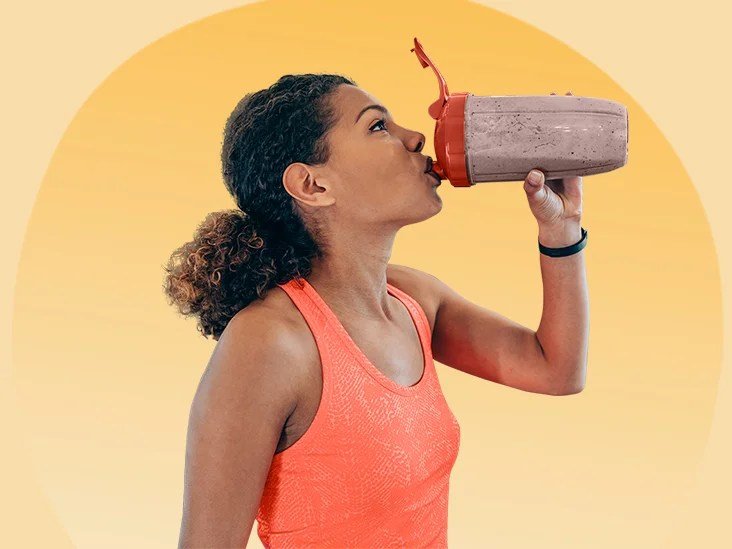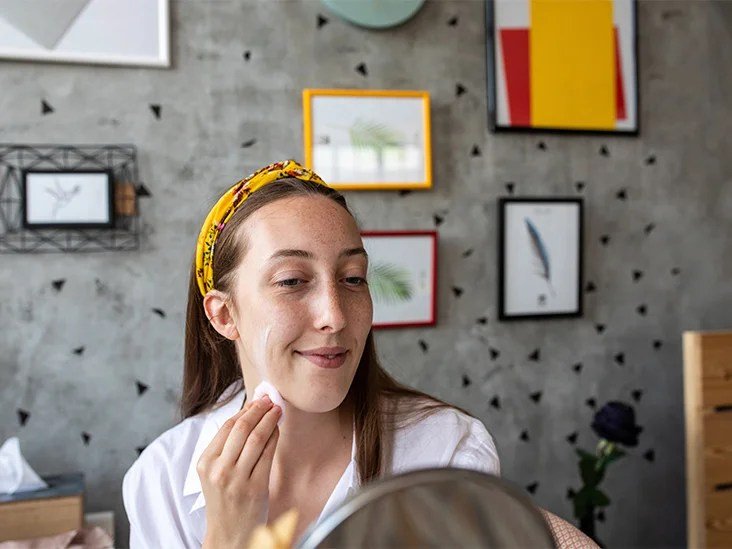Vitamin & Supplement Product Reviews
11 Best Multivitamins for Women’s Health in 2023, According to Dietitians
We include products we think are useful for our readers. If you buy through links on this page, we may earn a small commission Here’s our process.
How we vet brands and products
Healthline only shows you brands and products that we stand behind.
Our team thoroughly researches and evaluates the recommendations we make on our site. To establish that the product manufacturers addressed safety and efficacy standards, we:
- Evaluate ingredients and composition: Do they have the potential to cause harm?
- Fact-check all health claims: Do they align with the current body of scientific evidence?
- Assess the brand: Does it operate with integrity and adhere to industry best practices?
We do the research so you can find trusted products for your health and wellness.
Garden of Life mykind Organics offers the best overall multivitamin for women due to its quality ingredients and third-party testing. Find out more about all the women’s multivitamins that made our list.
- Best overall: Garden of Life mykind Organics Women’s Once Daily
- Best subscription: Care/of The Foundation Multivitamin + Iron
- Best for women in their 20s: Ritual Essential for Women 18+
- Best for women over 40: New Chapter Every Woman’s One Daily 40+ Multivitamin
- Best for women over 50:Thorne Women’s Multi 50+
- Best for women over 60: MegaFood Multi for Women 55+
- Best gummy: OLLY The Perfect Women’s Multi
- Best gluten-free: Garden of Life Vitamin Code Women
- Best with iron: Optimum Nutrition Opti-Women
- Best prenatal multivitamin: FullWell Prenatal Multivitamin
- Best affordable: Nature Made Multi for Her
Women often miss out on specific vital nutrients such as vitamin D and calcium. While increasing your consumption of certain foods may help with this, multivitamins are another way to ensure that you’re getting the proper nutrients.
Below are the 11 best multivitamins for women, along with tips from a dietitian on what to look for.
Sex and gender exist on spectrums. This article uses the term “women” to refer to a person’s sex assigned at birth.
We rounded up the best multivitamins for women based on the following criteria that we believe to be important indicators of safety, quality, and transparency:
- Nutrient quality: We looked for products that use highly absorbable forms of nutrients.
- Ingredients: We included products that are made from quality ingredients and free of artificial additives. We also paid close attention to the types and amounts of nutrients included in each product.
- Health concerns: We looked for products to suit a variety of needs.
- Vetting: All the multivitamins on our list have been vetted to ensure that they align with Healthline’s brand integrity standards and approach to well-being.
A note on price
General price ranges are indicated below with dollar signs ($–$$$). One dollar sign means the product is rather affordable, whereas three dollar signs indicate a higher cost.
Generally, prices range from approximately $0.30 to $1.80 per serving, or $14 to $54 per container, though this may vary depending on where you shop.
Note that serving sizes are generally 1–2 capsules per day, though one product recommends 8 capsules per day.
Pricing guide
- $ = under $0.50 per serving
- $$ = $0.50–$1.25 per serving
- $$$ = over $1.25 per serving
Best overall
Garden of Life mykind Organics Women’s Once Daily
- Price: $$
- Age group: 18+
- Type: tablets
- Dosage: 1 tablet daily
- Vitamins and minerals: thiamine, riboflavin, niacin, folate, biotin, pantothenic acid, iron, zinc, selenium, manganese, chromium, and vitamins A, C, D, E, K, B6, and B12
This whole foods-based multivitamin is our pick as the best overall thanks to its high quality ingredients, comprehensive formulation, and third-party testing. It also has more than 11,000 five-star reviews on Amazon.
Garden of Life mykind Organics Women’s Once Daily multivitamin is certified organic, non-GMO verified, and certified vegan.
Garden of Life products are third-party tested, although the name of the testing organization is not disclosed.
Pros
- third-party tested
- whole foods-based ingredients
- certified organic and non-GMO verified
- gluten-free and certified vegan
Cons
- contains a proprietary organic food blend, which some may need to avoid
Best subscription
Care/of The Foundation Multivitamin + Iron
- Price: $$
- Age group: 18+
- Type: tablets
- Dosage: 2 tablets daily
- Vitamins and minerals: folate, choline, calcium, iron, magnesium, potassium, silica, boron, mixed tocopherols, and vitamins A, C, D, E, B6, B12, and K2
Care/of The Foundation Multivitamin + Iron is a high quality multivitamin that the company automatically ships to your door each month.
The multivitamin comes in convenient daily packs. It contains less than 100% of the Daily Value (DV) of several nutrients because it’s meant to fill nutrient gaps in your diet rather than to serve as the sole source of those nutrients.
However, vitamin B12, vitamin D3, and folate are included at or above 100% of the DV, as women’s diets are often low in these nutrients (1, 2).
This multivitamin contains iron, which is important for people who menstruate. However, Care/of also offers an iron-free version of The Foundation.
Care/of products are third-party tested and meet the standards set by NSF International.
Read more about how Care/of works in our expert review.
Pros
- third-party tested
- vegan-friendly and gluten-free
- non-GMO
- iron-free version available for postmenopausal women
Cons
- requires a subscription
Best for women in their 20s
Ritual Essential for Women 18+
- Price: $$
- Age group: 18–49
- Type: capsules
- Dosage: 2 capsules daily
- Vitamins and minerals: folate, iron, magnesium, boron, omega-3 DHA, and vitamins D3, E, B12, and K1
This subscription-based multivitamin provides nutrients that many women in their 20s often don’t get enough of, including vitamin D, folate, and the omega-3 fatty acid docosahexaenoic acid (DHA) (3, 4, 5).
Omega-3 DHA is associated with eye, heart, and brain health. While it’s typically found in fish, Ritual sources it from microalgae, which means it’s vegan-friendly (6).
A clinical study showed improvements in vitamin D and DHA levels in 105 healthy women ages 21–40 who took this product for 12 weeks. However, several of the authors were employed by Ritual, and Ritual helped fund the study (7).
Vitamin C, B vitamins, selenium, and calcium are missing from this multivitamin. However, it does contain vitamin D, magnesium, and vitamin K2, which can help improve the absorption of calcium from your diet (8, 9).
Learn more about Ritual in our comprehensive review.
Pros
- third-party tested
- contains omega-3 DHA
- vegan-friendly
- free of gluten and major allergens
Cons
- potential conflict of interest in the clinical study
- contains fewer types of vitamins and minerals than other supplements
Best for women over 40
New Chapter Every Woman’s One Daily 40+ Multivitamin
- Price: $$
- Age group: 40+
- Type: tablets
- Dosage: 1 tablet daily
- Vitamins and minerals: thiamine, riboflavin, niacin, folate, pantothenic acid, calcium, iodine, magnesium, zinc, selenium, copper, manganese, chromium, molybdenum, and vitamins A, C, D3, E, K, B6, and B12
Designed to support breast, hormone, and heart health in women over 40, this multivitamin from New Chapter is a great option for women in their 40s and beyond.
It contains fermented nutrients, which the company claims are easier on the stomach.
This supplement does include some proprietary blends, so be sure to scan the label for any ingredients that you are sensitive to or that could interact with medications you’re taking.
New Chapter is a Certified B Corporation, and its products are NSF Certified.
Pros
- third-party tested
- designed for easy digestion
- whole foods-based
- iron-free
- certified gluten-free and non-GMO verified
- vegetarian
Cons
- contains proprietary blends
- not suitable for vegans
- does not contain iron, so those who menstruate may need a separate iron supplement
Best for women over 50
Thorne Women’s Multi 50+
- Price: $$$
- Age group: 50+
- Type: capsules
- Dosage: 6 capsules daily
- Vitamins and minerals: thiamine, riboflavin, niacin, folate, biotin, pantothenic acid, choline, calcium, iodine, magnesium, zinc, selenium, manganese, chromium, boron, lutein, and vitamins A, C, D, E, B6, and B12
After menopause, women need less iron but more calcium and vitamin B6 (9, 10).
This multivitamin for women over 50 is formulated to address these changing needs with highly absorbable forms of vitamins D, B12, and B6.
It also includes lutein, an antioxidant that plays a role in maintaining eye health (11).
Thorne Research manufactures its products in third-party certified facilities and has received an “A” rating from the Therapeutic Goods Administration. The brand’s supplements are also NSF Certified for Sport.
Pros
- third-party tested
- iron-free
- contains lutein
- gluten-free
Cons
- expensive
- recommended dose of 6 capsules per day
- not suitable for vegans or vegetarians
Best for women over 60
MegaFood Multi for Women 55+
- Price: $$
- Age group: 55+
- Type: tablets
- Dosage: 2 tablets daily
- Vitamins and minerals: thiamine, riboflavin, niacin, folate, biotin, pantothenic acid, choline, iodine, zinc, selenium, copper, manganese, chromium, molybdenum, green tea leaf extract, and vitamins A, C, D3, E, K, B6, and B12
Technically designed for women over 55, this multivitamin from MegaFood is our pick as the best for women over 60 because it is formulated to support healthy aging after menopause.
This comprehensive multivitamin contains ingredients derived from whole foods. It’s also appropriately iron-free (12).
Just keep in mind that while MegaFood supplements are tested for herbicides and pesticides, they’re not third-party tested for purity or accuracy.
Pros
- whole foods-based
- iron-free
- third-party tested for herbicides and pesticides
- certified gluten-, dairy-, and soy-free
- vegetarian
Cons
- not third-party tested for purity or accuracy
- contains high doses of some nutrients
Best gummy
OLLY The Perfect Women’s Multi
- Price: $
- Age group: 18+
- Type: gummies
- Dosage: 2 gummies daily
- Vitamins and minerals: thiamine, riboflavin, niacin, folate, biotin, pantothenic acid, calcium, phosphorous, iodine, zinc, selenium, chromium, boron, and vitamins A, C, D, E, B6, and B12
If swallowing capsules or tablets isn’t your thing, this gummy vitamin may be an easier alternative.
It provides several nutrients, including B vitamins, vitamin D, and calcium. And because it’s iron-free, it’s suitable for postmenopausal women (12).
Also included is biotin, which is meant to offer skin benefits. However, the research on this is mixed (13, 14, 15).
This product is third-party tested by NSF International.
Pros
- third-party tested
- gluten-free
- easier to take
- suitable for postmenopausal women
- naturally flavored and colored
Cons
- may not be ideal for people who menstruate
- mixed reviews of the taste and smell
- contains 2 grams of added sugar per serving
- not suitable for vegans or vegetarians
Best gluten-free
Garden of Life Vitamin Code Women
- Price: $$$
- Age group: 18–49
- Type: capsules
- Dosage: 4 capsules daily
- Vitamins and minerals: thiamine, riboflavin, niacin, folate, biotin, pantothenic acid, iron, iodine, zinc, selenium, manganese, chromium, molybdenum, and vitamins A, C, D, E, K, B6, and B12
This multivitamin is certified gluten-free, so it’s a good choice if you have celiac disease or another gluten-related disorder.
It contains live probiotics and enzymes, as well as calcium, magnesium, zinc, and vitamins A, C, D3, E, and B complex.
It also contains some proprietary blends, which means the amount of each ingredient is not listed. Therefore, if you’re sensitive to any of the ingredients in the blend, it’s a good idea to avoid this product.
This product is manufactured in facilities that adhere to the current good manufacturing practice (CGMP) standards established by the Food and Drug Administration (FDA). It’s also third-party tested, although the name of the testing organization is not disclosed.
Pros
- third-party certified and tested
- certified gluten-free
- non-GMO verified
- vegetarian
- whole foods-based ingredients
Cons
- expensive
- contains proprietary blends
- recommended dose of 4 capsules per day
Best with iron
Optimum Nutrition Opti-Women
- Price: $$
- Age group: 18–49
- Type: capsules
- Dosage: 2 capsules daily
- Vitamins and minerals: thiamine, riboflavin, niacin, folate, biotin, pantothenic acid, calcium, iron, iodine, magnesium, zinc, selenium, copper, manganese, chromium, molybdenum, and vitamins A, C, D, E, K, B6, and B12
This product is formulated to support active women by including folic acid, iron, and vitamin D (16, 17, 18).
It’s also third-party tested and processed in a CGMP-compliant facility.
Because this multivitamin contains high doses of several nutrients, taking just 1 capsule per day may be sufficient, depending on your needs.
Additionally, while the capsules are approved by the Vegetarian Society, the company does not disclose whether the nutrients themselves are derived from plant or animal sources.
Finally, because the product contains several herbs, it could potentially interact with some medications.
Pros
- third-party tested
- vegan-friendly
- contains 100% of the DV for iron
Cons
- contains high doses of some nutrients
Best prenatal multivitamin
FullWell Prenatal Multivitamin
- Price: $$$
- Age group: 18+
- Type: capsules
- Dosage: 8 capsules daily
- Vitamins and minerals: thiamine, riboflavin, niacin, folate, biotin, pantothenic acid, choline, calcium, iodine, magnesium, zinc, selenium, copper, manganese, chromium, molybdenum, potassium, and vitamins A, C, D, E, B6, B12, and K2
Developed by a registered dietitian and fertility nutrition expert, this prenatal vitamin is formulated to provide the nutrients needed to support a healthy pregnancy (19).
In addition to nutrients like folate and calcium, the supplement includes choline, an essential nutrient that’s important for fetal development and proper functioning of the placenta (20).
According to the company’s website, FullWell did not include omega-3 DHA because of concerns that DHA may not be as effective when combined with a multivitamin.
However, because adequate amounts of DHA are important during pregnancy, it’s a good idea to discuss taking a DHA supplement with your doctor (19).
FullWell Prenatal Multivitamins are third-party tested, although the name of the testing organization is not disclosed.
Pros
- third-party tested
- developed by a registered dietitian
- contains choline
Cons
- expensive
- recommended dose of 8 capsules per day
- does not contain DHA
Best affordable women’s multivitamin
Nature Made Multi for Her
- Price: $
- Age group: 18–49
- Type: tablets
- Dosage: 1 tablet daily
- Vitamins and minerals: thiamine, riboflavin, niacin, folate, biotin, pantothenic acid, calcium, iron, iodine, magnesium, zinc, selenium, copper, manganese, chromium, molybdenum, and vitamins A, C, D3, E, K, B6, and B12
This multivitamin is less expensive than many others on the market but still contains 23 nutrients important for women’s health.
Notably, it contains 100% of the DV for iron in the highly absorbable form ferrous fumarate, making this a great option for menstruating women (21).
It’s also third-party tested and verified by United States Pharmacopeia (USP).
Pros
- third-party tested
- affordable
- gluten-free
- vegetarian
Cons
- contains high doses of some nutrients
- not suitable for vegans
Here’s a quick look at how our top picks compare:
| Price range | Dose | Best for | Third-party tested | Vegan | Contains iron | |
|---|---|---|---|---|---|---|
| Care/of The Foundation Multivitamin + Iron | $$ | 2 tablets | those interested in daily vitamin packs | yes | yes | yes |
| FullWell Prenatal | $$$ | 8 capsules | pregnancy and nursing | yes | no | no |
| Garden of Life mykind Organics Women’s Once Daily | $$ | 1 tablet | general well-being | yes | yes | yes |
| Garden of Life Vitamin Code Women | $$$ | 4 capsules | whole foods-based ingredients | yes | no | yes |
| MegaFood Multi for Women 55+ | $$ | 2 tablets | women over 55 who prefer whole foods-based ingredients | no | no | no |
| Nature Made Multi for Her | $ | 1 tablet | tight budgets | yes | no | yes |
| New Chapter Every Woman’s One Daily 40+ | $$ | 1 tablet | women over 40 | yes | no | no |
| OLLY The Perfect Women’s Multi | $ | 2 gummies | those who prefer gummy vitamins | yes | no | no |
| Optimum Nutrition Opti-Women | $$ | 2 capsules | athletes | yes | yes | yes |
| Ritual Essential for Women 18+ | $$ | 2 capsules | women in their 20s with a mostly balanced diet | yes | yes | yes |
| Thorne Women’s Multi 50+ | $$$ | 6 capsules | women 50 and over | yes | no | no |
While many women can meet their nutrient needs through diet alone, some may benefit from taking a multivitamin.
For example, doctors often recommend that people who are pregnant or nursing take a multivitamin because nutrient deficiencies that arise during critical periods of growth and development can cause severe and irreversible complications in both a pregnant person and their baby (1, 19, 22, 23).
Additionally, research has shown that pregnant women’s typical intakes of some nutrients — iron, DHA, folic acid, and vitamin D — fall short of their needs (1, 19, 22).
While this list isn’t exhaustive, in general, people who may benefit from a multivitamin include those who (24, 25):
- are pregnant, breastfeeding, or trying to conceive
- follow a vegan diet
- have food allergies
- follow a more restrictive diet
- have little appetite
- have a diagnosis of absorption issues
- are over age 55
Still, not everyone needs a multivitamin, as some individuals get plenty of nutrients through diet alone. Additionally, multivitamins may not be appropriate for people who are already taking other single-nutrient supplements or who take certain medications.
Before purchasing a multivitamin, it’s best to talk with a healthcare professional about whether a multivitamin is necessary or appropriate.
With so many multivitamins available, choosing a product can feel overwhelming. Here are a few factors to consider:
- Age and life stage: Because nutrient needs change as you age, some multivitamins are made specifically for certain age groups. Similarly, people who are pregnant or nursing should opt for a product specifically formulated to meet prenatal or postnatal needs.
- Dietary restrictions or allergies: Be sure to carefully read ingredient labels if you have a food allergy or dietary restriction.
- Amounts of nutrients provided: It’s typically best to avoid products that contain very high doses of any nutrients unless a healthcare professional has recommended them to you.
- Number of pills: If you have difficulty remembering to take your vitamins, opt for a product that’s taken once per day. Additionally, if you don’t like swallowing pills, consider a gummy or chewable option instead.
- Budget: Be sure to consider the price per serving when determining whether a supplement fits your budget.
- Quality: Choose products that are third-party tested by organizations such as USP, NSF International, and ConsumerLab.
Before beginning any new supplement, we recommend talking with a healthcare professional. Not everyone needs to take multivitamins, and your doctor may recommend a single-nutrient vitamin instead.
{“@context”:”https://schema.org”,”@type”:”FAQPage”,”mainEntity”:[{“@type”:”Question”,”name”:”Do women’s multivitamins really work?”,”acceptedAnswer”:{“@type”:”Answer”,”text”:”Multivitamins can help certain people meet nutrient needs. However, it also can increase nutrient intakes beyond what’s considered safe (26).
In terms of improving overall health and preventing chronic diseases, multivitamins may play a role, though more research is needed (27, 28).
Furthermore, research has shown that healthy people are more likely to regularly take a multivitamin than those who have nutritional deficiencies. For this reason, the research on whether a multivitamin can improve health outcomes is inconclusive (26).
However, a doctor may still recommend one for you to help fill any nutrient gaps in your diet.”}},{“@type”:”Question”,”name”:”Is it good to take a multivitamin every day?”,”acceptedAnswer”:{“@type”:”Answer”,”text”:”Studies have shown that a multivitamin daily can help some individuals meet their needs, in others it may lead to excessive intakes of nutrients (26).
For this reason, it’s important to carefully read supplement labels and identify any nutrients that you’re already consuming regularly, either through your diet or through other supplements.
Another important factor is the types of vitamins included in a product.
Water-soluble vitamins, like B vitamins and vitamin C, are easily excreted in your urine when consumed in excess. However, fat-soluble vitamins — vitamins A, D, E, and K — can build up in your body, potentially leading to toxicity (29).
It’s a good idea to check with a healthcare professional before beginning any new supplement, including a multivitamin.”}},{“@type”:”Question”,”name”:”What vitamins should women take daily?”,”acceptedAnswer”:{“@type”:”Answer”,”text”:”There’s no one-size-fits-all vitamin protocol, as nutrient needs vary from person to person.
That said, it’s not uncommon for women to be low in iron, vitamin D, and vitamin B6 (30).
Still, before taking any vitamin supplements, it’s best to have your diet assessed by a nutrition professional to see if supplements are necessary.”}},{“@type”:”Question”,”name”:”What’s the best time to take a multivitamin?”,”acceptedAnswer”:{“@type”:”Answer”,”text”:”Some vitamins, like water-soluble vitamins, can be absorbed on an empty stomach. However, multivitamins typically contain fat-soluble vitamins as well, which require dietary fat for absorption, so it’s best to take them with a meal or snack.
To make it easier to remember to take your multivitamin, try taking your vitamin with the same meal each day.”}},{“@type”:”Question”,”name”:”What are the best multivitamins for pregnant women?”,”acceptedAnswer”:{“@type”:”Answer”,”text”:”If you are pregnant or plan to become pregnant, it’s recommended that you take a multivitamin specifically formulated to meet the unique nutrient demands of pregnancy (31).
FullWell is one of the best prenatal multivitamins. Each serving has vitamin D, folate, as well as choline — an important nutrient for fetal and placental development that’s often missing from prenatal supplements (32).
Of course, there are several other high quality prenatal multivitamins that are worth considering as well.”}},{“@type”:”Question”,”name”:”What’s the highest rated women’s multivitamin?”,”acceptedAnswer”:{“@type”:”Answer”,”text”:”OLLY The Perfect Women’s Multi is one of the highest rated women’s multivitamins on Amazon, with more than 25,900 five-star ratings at the time of publishing. It’s also our pick for the best gummy multivitamin for women.
Still, while ratings are important, keep in mind that there’s no one best multivitamin for everyone. Your individual supplement needs depend on several factors, including your age, diet, dietary preferences, health concerns, and current medications.”}}]}
Do women’s multivitamins really work?
Multivitamins can help certain people meet their nutrient needs. However, they also can increase nutrient intakes beyond the levels that are considered safe (26).
In terms of improving overall health and preventing chronic diseases, multivitamins may play a role, though more research is needed (27, 28).
Furthermore, research has shown that healthy people are more likely to regularly take a multivitamin than those who have nutritional deficiencies. For this reason, the research on whether a multivitamin can improve health outcomes is inconclusive (26).
However, a doctor may still recommend one for you to help fill any nutrient gaps in your diet.
Is it good to take a multivitamin every day?
Studies have shown that taking a multivitamin daily can help some individuals meet their needs, while in others it may lead to excessive intake of nutrients (26).
For this reason, it’s important to carefully read supplement labels and identify any nutrients you’re already consuming regularly, either through your diet or through other supplements.
Another important factor is the types of vitamins included in a product.
Water-soluble vitamins, such as B vitamins and vitamin C, are easily excreted in your urine when consumed in excess. However, fat-soluble vitamins — vitamins A, D, E, and K — can build up in your body, potentially leading to toxicity (29).
It’s a good idea to check with a healthcare professional before beginning any new supplement, including a multivitamin.
What vitamins should women take daily?
There’s no one-size-fits-all vitamin protocol, as nutrient needs vary from person to person.
That said, it’s not uncommon for women to be low in iron, vitamin D, and vitamin B6 (30).
Still, before taking any vitamin supplements, it’s best to have your diet assessed by a nutrition professional to see whether supplements are necessary.
What’s the best time to take a multivitamin?
Some vitamins, such as water-soluble vitamins, can be absorbed on an empty stomach. However, multivitamins also typically contain fat-soluble vitamins, which require dietary fat for absorption, so it’s best to take them with a meal or snack.
To make it easier to remember to take your multivitamin, try taking your vitamin with the same meal each day.
What are the best multivitamins for pregnant women?
If you are pregnant or plan to become pregnant, it’s recommended that you take a multivitamin specifically formulated to meet the unique nutrient demands of pregnancy (22).
FullWell is one of the best prenatal multivitamins. Each serving has vitamin D and folate, as well as choline — an important nutrient for fetal and placental development that’s often missing from prenatal supplements (31).
Of course, there are several other high quality prenatal multivitamins that are worth considering as well.
What’s the highest rated women’s multivitamin?
OLLY The Perfect Women’s Multi is one of the highest rated women’s multivitamins on Amazon, with more than 25,900 five-star ratings at the time of publishing. It’s also our pick for the best gummy multivitamin for women.
Still, while ratings are important, keep in mind that there’s no one best multivitamin for everyone. Your individual supplement needs depend on several factors, including your age, diet, dietary preferences, health concerns, and current medications.
Multivitamins can help fill nutritional gaps for people who have difficulty meeting their nutrient needs through diet alone, as well as for those who are pregnant or nursing or have certain dietary restrictions.
But not everyone needs a multivitamin, and regularly consuming some nutrients in excess can be detrimental to overall health.
Be sure to check with a healthcare professional before beginning any new supplements, including a multivitamin.
Why you should trust us
Every brand and product on our list has been vetted to ensure that it aligns with Healthline’s brand integrity standards and approach to well-being. Each product in this article:
- adheres to allowable health claims and labeling requirements, per FDA regulations
- is manufactured in facilities that adhere to the CGMP standards established by the FDA
- is produced by a medically credible company that follows ethical, legal, and industry best standards
- is made by a company that provides objective measures of trust, such as having its supplements validated by third-party labs







